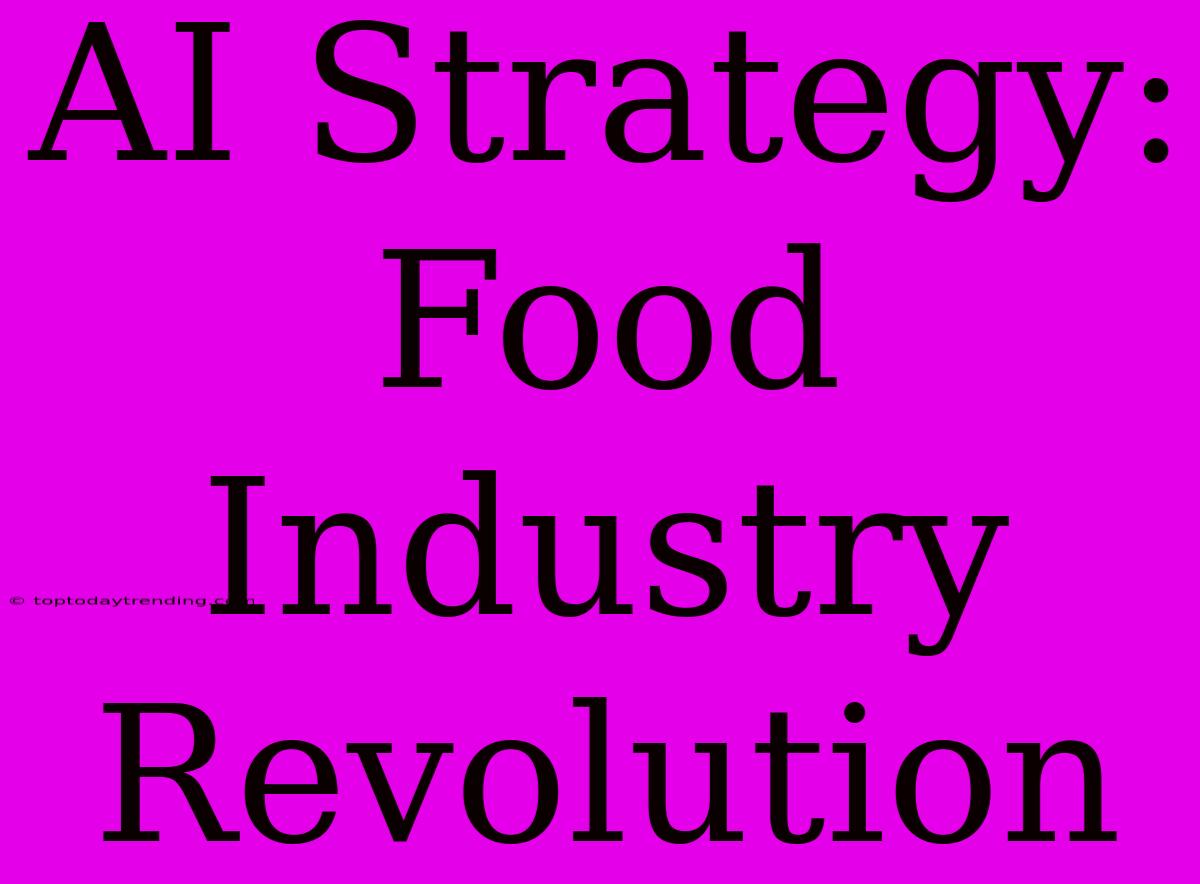AI Strategy: Food Industry Revolution
The food industry is undergoing a dramatic transformation, fueled by the power of artificial intelligence (AI). From optimizing supply chains to enhancing food safety, AI is poised to revolutionize every aspect of the food system, making it more efficient, sustainable, and ultimately, beneficial for consumers. This article explores the key ways AI is impacting the food industry and outlines a strategic approach for companies to harness its power.
AI's Impact on the Food Industry
1. Supply Chain Optimization:
- Predictive Analytics: AI algorithms can analyze vast amounts of data to predict demand fluctuations, optimize inventory levels, and minimize waste.
- Route Optimization: AI-powered systems can optimize delivery routes, reducing transportation costs and improving delivery efficiency.
- Automated Inventory Management: AI-powered systems can automate inventory tracking, reduce stockouts, and ensure efficient warehouse operations.
2. Food Safety and Quality:
- Real-time Monitoring: AI can analyze data from sensors and cameras to monitor food quality in real-time, detecting potential spoilage or contamination.
- Traceability: AI enables the creation of comprehensive food traceability systems, allowing companies to quickly identify and remove contaminated products from the market.
- Automated Inspection: AI-powered systems can automate the inspection of food products, ensuring adherence to quality standards and minimizing human error.
3. Personalized Nutrition and Food Recommendations:
- Dietary Analysis: AI can analyze individual dietary needs, preferences, and health conditions to provide personalized nutrition recommendations.
- Recipe Generation: AI algorithms can create customized recipes based on user preferences, dietary restrictions, and available ingredients.
- Personalized Food Delivery: AI-powered platforms can connect consumers with personalized food delivery services, catering to specific dietary needs.
4. Sustainable Food Production:
- Precision Agriculture: AI can optimize farm operations, minimizing resource usage and maximizing yield through data-driven insights.
- Crop Monitoring: AI-powered systems can monitor crop health, identify pests and diseases, and guide intervention measures.
- Water and Fertilizer Optimization: AI can optimize water and fertilizer usage, reducing environmental impact and improving resource efficiency.
Developing an AI Strategy for the Food Industry
1. Identify Clear Business Objectives:
Start by defining specific business goals that AI can help achieve. This could be anything from reducing waste to improving food safety to developing new product lines.
2. Focus on Data Acquisition and Management:
AI thrives on data. Companies must invest in robust data collection and management systems to provide AI with the necessary insights.
3. Choose the Right AI Solutions:
There are numerous AI solutions available, each with specific applications. Companies need to carefully evaluate which solutions best fit their specific needs and objectives.
4. Invest in Talent and Training:
Implementing an AI strategy requires skilled data scientists, engineers, and professionals who understand the potential of AI in the food industry.
5. Foster Collaboration and Partnerships:
Collaboration with AI experts, technology providers, and other stakeholders in the food industry can accelerate the development and implementation of AI strategies.
6. Prioritize Ethical Considerations:
AI applications must be developed and implemented ethically, considering data privacy, bias, and transparency.
Conclusion
AI is no longer a futuristic concept but a transformative force shaping the future of the food industry. By embracing a strategic approach, food companies can leverage the power of AI to create a more efficient, sustainable, and consumer-centric food system.

